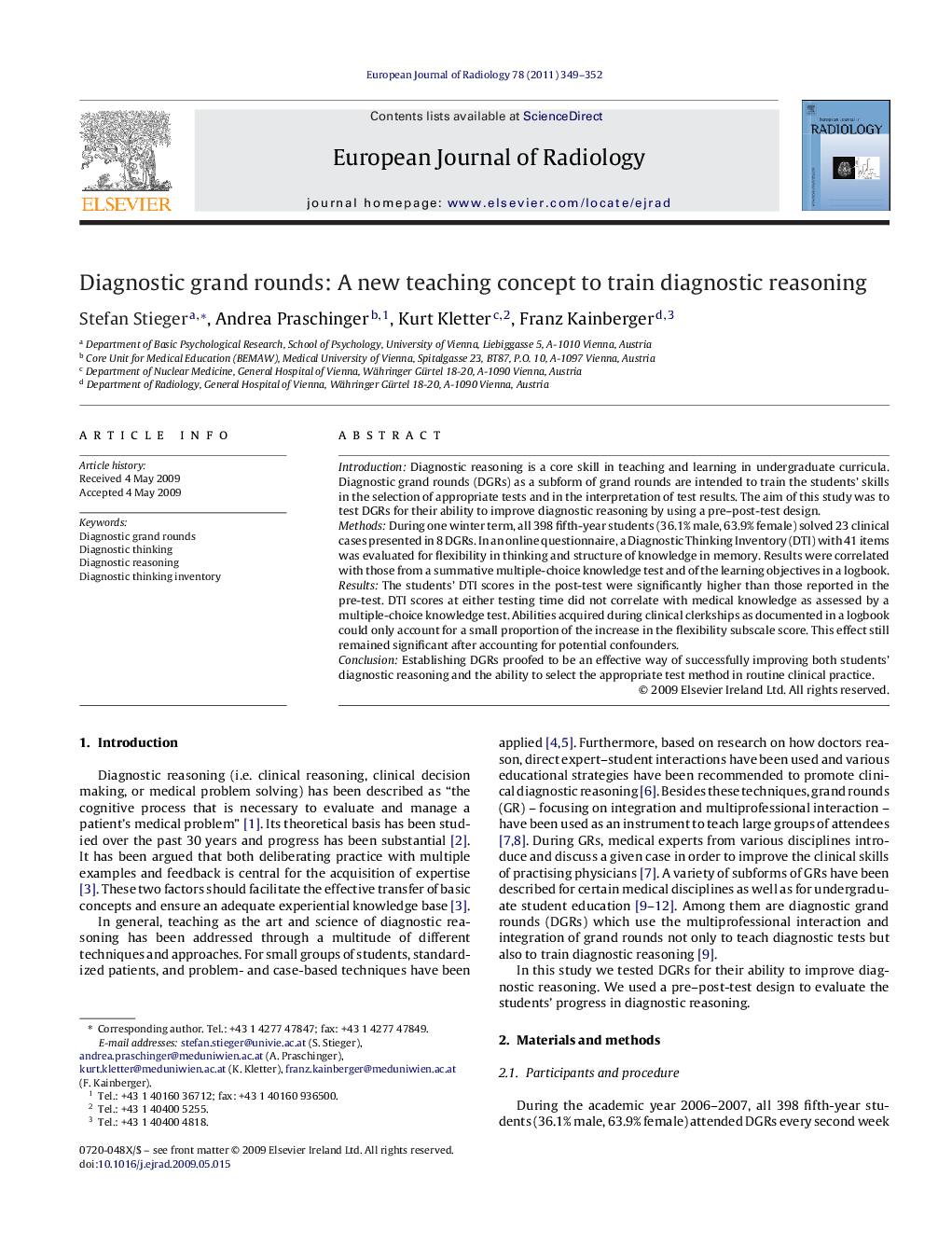| کد مقاله | کد نشریه | سال انتشار | مقاله انگلیسی | نسخه تمام متن |
|---|---|---|---|---|
| 4226316 | 1609802 | 2011 | 4 صفحه PDF | دانلود رایگان |

IntroductionDiagnostic reasoning is a core skill in teaching and learning in undergraduate curricula. Diagnostic grand rounds (DGRs) as a subform of grand rounds are intended to train the students’ skills in the selection of appropriate tests and in the interpretation of test results. The aim of this study was to test DGRs for their ability to improve diagnostic reasoning by using a pre–post-test design.MethodsDuring one winter term, all 398 fifth-year students (36.1% male, 63.9% female) solved 23 clinical cases presented in 8 DGRs. In an online questionnaire, a Diagnostic Thinking Inventory (DTI) with 41 items was evaluated for flexibility in thinking and structure of knowledge in memory. Results were correlated with those from a summative multiple-choice knowledge test and of the learning objectives in a logbook.ResultsThe students’ DTI scores in the post-test were significantly higher than those reported in the pre-test. DTI scores at either testing time did not correlate with medical knowledge as assessed by a multiple-choice knowledge test. Abilities acquired during clinical clerkships as documented in a logbook could only account for a small proportion of the increase in the flexibility subscale score. This effect still remained significant after accounting for potential confounders.ConclusionEstablishing DGRs proofed to be an effective way of successfully improving both students’ diagnostic reasoning and the ability to select the appropriate test method in routine clinical practice.
Journal: European Journal of Radiology - Volume 78, Issue 3, June 2011, Pages 349–352